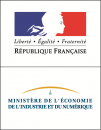
|
| , - |
|
| Salle Raymond Aron, Paris-Dauphine University |
 Organised under the patronage of Emmanuel Macron, French Minister for the Economy, Industry and the Digital Economy
Organised under the patronage of Emmanuel Macron, French Minister for the Economy, Industry and the Digital Economy
Economic governance is de facto organised on a federal basis. It is true that the sectoral regulatory authorities are most often national, but many other levels of governance are involved in regulating industries and markets.
Local and regional authorities play a key role in network industries. Not only can they dictate the rules for matters falling within their remit, but they can also be stakeholders in regulation as concessionaires, operators or user representatives.
For its part, European integration plays a key role, not only because it has contributed to the widespread adoption of the independent authorities model, but also because the European standard-setting process operates and cooperation between regulators is a force for harmonisation. In certain areas, such as digital technology or the environment, regulation is de facto organised at a global level through processes that are not, moreover, solely state-based.
What is the result of this multiplicity of regulatory players? Are we benefiting from a process of harmonisation, or are we on the contrary witnessing a process of fragmentation? Does multi-level regulation obey the principle of subsidiarity, or does it give rise to inconsistencies that generate inefficiency and risk? Does the situation vary greatly from one sector to another, and are there more effective models that could serve as benchmarks? What about non-European experiences?
And how should we interpret the current trends? Are public authorities pursuing efficiency or sovereignty objectives? Are operators paralysed by inefficient institutional frameworks, or are they making do with them to protect their acquired positions? Do users have common interests? What developments can be expected? Are there levers that can be used to take us down the most promising paths?
These are some of the questions that will be discussed at this conference.
Programme
- Johannes Kindler, Lawyer at Bird & Bird and former Vice-Chairman of the Council of European Energy Regulators
Is the EU always a union of law? How “priority” political considerations can influence or even overrule the existing regulatory order - William E. Kovacic, Professor of Law at George Washington University and former Chairman of the Federal Trade Commission
Regulatory stacking: policy integration by ownership or contract? - Martino Maggetti, Professor of Political Science at the University of Lausanne
Why is it worth to be a Member? The consequences and implications of European RegulatoryNetworks - Jacobo Pastor Garcia Villarreal, Regulatory Policy Division, OECD
OECD insights on multi-level regulatory governance - Jacques Pelkmans, Senior Fellow au Centre for European Policy Studies and Professor at the College of Europe in Bruges
EU regulators - good for the single market and policies

























